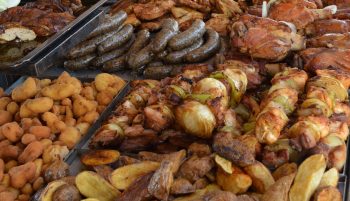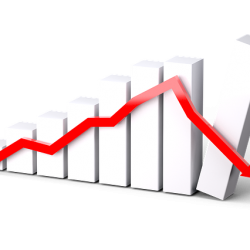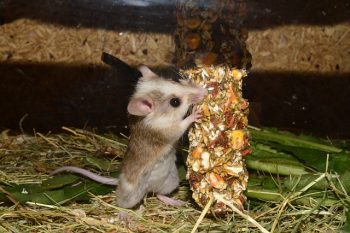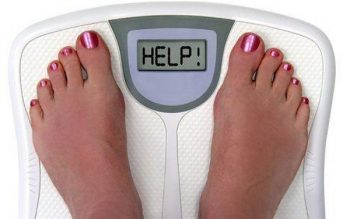Intermittent Fasting – Starving in the midst of Plenty
 I’ve never been one to follow the diet fads. I love my food too much and really can’t stand feeling hungry. Until recently reaching a stage in my life known as Perimenopause, I’ve been pretty lucky genetically and haven’t had to work too hard at keeping within a healthy body weight. I’ve always been of the mindset that eating healthy food and getting enough exercise are all you need to do. It’s all I’ve ever needed to do, anyway, but now there are questions over insulin resistance in menopause. While I’ve done my best to empathise with people who are challenged with eating disorders, or struggle with weight gain no matter how healthy their diet is or how much exercise they do, I haven’t had any need to explore the world of weight loss… Until recently, that is.
I’ve never been one to follow the diet fads. I love my food too much and really can’t stand feeling hungry. Until recently reaching a stage in my life known as Perimenopause, I’ve been pretty lucky genetically and haven’t had to work too hard at keeping within a healthy body weight. I’ve always been of the mindset that eating healthy food and getting enough exercise are all you need to do. It’s all I’ve ever needed to do, anyway, but now there are questions over insulin resistance in menopause. While I’ve done my best to empathise with people who are challenged with eating disorders, or struggle with weight gain no matter how healthy their diet is or how much exercise they do, I haven’t had any need to explore the world of weight loss… Until recently, that is.
Since perimenopause has come to visit, things have been slowing right down and the love handles have started spilling over my waist-bands with a vengeance. The tipping point was when, in a fit of despair, I tried on the jeans I’d bought to fit me straight after giving birth for the third time ten years ago, and they were too small.
Insulin Resistance and how to lose weight during perimenopause
But there’s more to this journey than my vanity at stake. On my way to that tipping point, my blood glucose control, which has always been wobbly at the best of times and needed lots of hard work to maintain, has now hitched a ride on a roller coaster. I’m seriously worrying about metabolic syndrome, or worse yet, type 2 diabetes if I continue the way I’m going.
They say that blood sugar can be controlled by diet and exercise and it’s true, to a point. But if you combine genetics, a history of trauma, a high-stress stage of life on top of peri menopause blood sugar fluctuations can’t help but take a big nosedive.  Things just get that much more difficult to maintain after so many challenges. I also have a history of eating way too much sugar over way too long, back when I didn’t know any better. Now, no longer can I merely coast along eating high protein, good fats, lots of veggies and a moderate amount of carbs. I can’t get away with only walking the dog a few times a week and hiding inside when it rains. I have to do something a little more drastic before it’s too late and I do serious damage to myself.
Things just get that much more difficult to maintain after so many challenges. I also have a history of eating way too much sugar over way too long, back when I didn’t know any better. Now, no longer can I merely coast along eating high protein, good fats, lots of veggies and a moderate amount of carbs. I can’t get away with only walking the dog a few times a week and hiding inside when it rains. I have to do something a little more drastic before it’s too late and I do serious damage to myself.
What is insulin resistance? The risks of poorly controlled blood glucose are scary. First of all, there’s the issue with reduced insulin sensitivity which lies at the heart of a lot of this. Many people with very poor blood glucose control end up feeling the need to eat every couple of hours, no matter how much quality protein and fat and resistant starches they weigh their diet down with. This is because the main blood glucose control hormone insulin isn’t working as effectively as it should be.
It means that more insulin is needed to do its job of helping glucose enter your body cells, where it is needed for the vital functions that sustain life. The very worst case scenario here is that the cells begin to starve in the midst of plenty, which is why people with poorly controlled blood glucose get hungry all the time. But then if you’re eating all the time, or grazing, insulin needs to be released many more times a day, and in higher amounts, than what the body was originally designed for. In this situation, where we feel the need to graze all the time, there will always be something digesting, meaning your system is constantly trying to process what you put into it.
Think about all those poor insulin receptors in the cell membranes, responsible for opening the gate to let glucose into the cell, being bombarded by insulin all day, every day for years and years on end. After a while, those insulin receptors start to respond with a little less enthusiasm. It’s a little like when you eat spicy foods on a regular basis. At first, your taste buds scream. Later on, you need more and more chilli to get the same response.
When the blood glucose is too high on a chronic basis, the liver becomes overwhelmed and runs out of room to store any more glycogen; ie the pantry to store excess glucose is full. When extra glucose backs up in the system, it ends up getting shunted straight into fat (to generalise and simplify things just for the sake of keeping this short). This then leads to high blood triglycerides (high fatty acids), which are a significant contributor to systemic inflammation and can increase your risk of stroke and heart attack. Chronically high blood glucose levels are also a disaster for inflammation as well. Systemic inflammation is a disaster in so many ways, but it has been found in some independent studies that increased inflammation can lead to high blood and tissue cholesterol, the “bad” kind.
When blood glucose and triglycerides are chronically high in the blood, it makes the blood thicker and stickier and sludgier. This makes it harder to pump around the body (and there are other mechanisms that contribute too) and ends up contributing to blood pressure increasing. More of a disaster, right? Because now we have the perfect storm for heart disease. Everything we’ve learned about carbohydrates in the ‘eighties ended up being wrong. It isn’t a high fat diet that directly leads to high cholesterol, as long as you’re eating quality types of fat and not going over the top. A high carbohydrate diet has been the problem all along.
But how do we stop this dangerous pattern? Especially since I hate feeling hungry and as part of what I learned a long time ago in my early nutrition studies, I was told to eat 6 smaller meals a day. I was also bombarded with media messages telling me that breakfast is the most important part of the day. I’m actually wondering if this mess so many of us are in is a direct consequence of the junk science spewed out by breakfast cereal manufacturing corporations in the eighties.
So, while I go into mourning because breakfast is my favourite meal of the day, I am also acknowledging the need to do something different around here, and intermittent fasting is something I’ve been reading about for a while. I’m trying not to feel extreme nervousness about undertaking the most diet-y type thing I’ve ever tried in my life.
What is Intermittent Fasting for women?
Intermittent fasting is based around the premise that the body and digestive system need a break from food on a regular basis. If we go back a few thousand years, we’d see that people didn’t sit down to eat three meals a day, plus snacks in between. It was likely that most people only ate a full meal once or twice a day, and this would have been later in the day rather than earlier on. People may have eaten berries and other various nuts and travel friendly foods as they wandered, but the key here is that they moved their bodies a lot, and the pickings were relatively lean.
Today in the west we are surrounded by plenty. We have the option of grabbing whatever we want out of the fridge, off the shelf of the supermarket, or from a fast food outlet. The only things limiting us if we have the money to buy what we want are our powers of will, and choice. It couldn’t be further away from what our bodies are genetically accustomed to. We also have access to far more high carbohydrate type foods than we ever did before, including alcohol which can send our blood glucose control systems into overload. What is an insulin resistance diet?
It stands to reason, then, that giving our bodies a longer break from food every day might help to restore our insulin sensitivity, reduce formation of fatty acids in the blood and help to slow down that roller coaster that blood glucose control has become. I’m sure hoping so, anyway as tomorrow I start my intermittent fasting meal plan.
Day 1
10.00am I’m not missing breakfast too much… yet. After a walk with the dog, I’ve scheduled in a chat with a friend so I’m not thinking too much about fried eggs on wholemeal gluten free toast with avocado and baked beans followed by a cup of earl grey tea. Sigh. I’m finding it a little hard to concentrate as I talk to my friend, because all I can think of is food. I have to wind up the conversation a little earlier than I would have liked, because I’m getting hangry, and hangry isn’t a good look for anyone. It’s actually counterproductive as well. But it’s the same as my usual pattern because I get hangry at this time whether I’ve eaten breakfast or not. It also seems to make no difference no matter how much protein and fat I eat. So, I have brunch like I’ve described above and it’s delicious.
Then I’m hungry hungry hungry later on so I eat some hommous and whole grain rice crackers, a piece of fruit and one of those sugar free chia puddings. I want more but we’re going out to a friend’s place. For dinner I have chicken thigh fillets, a huge rainbow salad and baked potatoes drenched in organic cold pressed olive oil. Yum! I’m loving my food even more than usual. A little later I’m still hungry so I toast up some wholemeal gluten free toast smeared with liberal amounts of quality butter topped with mixed nut butter.

Day 2
I didn’t sleep that well last night because I felt hungry. I can’t stand feeling hungry, and as I try to allow myself to go into the feeling instead of just putting something in my mouth to get rid of it, a memory comes up. I’m a kid, maybe 5 years old, and I’ve had my usual corn flakes for breakfast drenched in milk and slathered with 6 spoons of sugar, but it’s now 11am and my mum has dragged me out to do the food shopping and it’s taken ages.
We’re on our way to the car with a full trolley but she has bumped into a friend and they’re chatting away for what seems like forever. I’m hangry. I’m tugging on her hand, feeling desperate because all I want to do is eat and I have no control over the situation and all my stress systems are starting to get activated (which happens when you get hangry). But I don’t understand what’s going on. I’m gearing up to do something drastic to get her attention, which I know is going to get me into big trouble later on, but all I know is that I need to eat NOW and I can’t, and I’m starting to panic…
Sound familiar?
Now, it’s 10am and the kids are fighting, the dog is barking, and every noise scrapes my eardrums and hurts my head like I have a hangover. Water is the only other thing allowed and I’ve had more than enough to sink a battle ship. I think I have better understanding now what it might feel like to have withdrawals from hard drugs. Apparently, I could make myself a cup of black tea or coffee because it’s allowed on this diet, but I’d be off the planet if I gave myself that much caffeine. I have a mint tea instead and grouch at the kids to be quiet. I put the dog out after yelling at him and he stands there with his tail between his legs looking at me like I’m the devil incarnate. This is hard. I don’t want to do this any more. I’m feeling so stupid for trying this, how could it possibly be doing me good when I feel so crappy? I have to remind myself I’ve tried so many other things, so I have to keep going. Besides, I won’t have a blog if I don’t see it through.
When I eat at around 11am, I cook myself up a big breakfast with eggs, bacon, baked beans, avocado, gluten free wholemeal toast with lots of butter. Then we go out for the day and I have to have more. Salmon sashimi with salad, pumpkin seed snacks, nuts, hommous, and I’m still wanting more. All I want is a packet of chips or a bar of chocolate. I make a cup of tea instead.
I’m headachey and still don’t feel quite right, even though I’ve been eating like a pig. My eyes hurt. I feel like I’m being so overdramatic, but I feel kind of desperate. I’ve decided to take some Syzygium, a herb known for its powerful blood glucose balancing properties, in a 30c homeopathic potency. It has helped me in the past balance blood sugar levels and will hopefully help support me during this transition period until I get used to it. In the past when I’ve tried this remedy over long periods of time, the effect doesn’t seem to last and the minute I stop, things backslide really quickly. I’m looking for something that gives more long term results rather than just a bandaid effect, and while taking a homeopathic every day is better than injecting insulin, I’m wanting to lay some solid groundwork to help support my body from the deepest possible level.
But it’s my son’s birthday party tomorrow and I can’t be a horrible grumpy bum around him on his special day. And then back to work on Monday and I can’t be feeling like this at work. So, the Syzygium helps me last longer between meals, makes me a nicer person (I hope) and might help me sleep better so I’ll hopefully be in a better mood tomorrow.
After taking Syzygium I feel better pretty much straight away. The weird headachey feeling is totally gone and my mood is a thousand percent improved. What a relief! Will totally be making more use of that in the future.
Homemade lamb curry tonight, drenched in coconut milk and packed with veggies, served with basmati rice cooked using the absorption method with a big dollop of coconut oil added to make the rice starches more resistant. This is the only way I can have rice, and it’s a rare treat. So good when I’m desperate for big, filling meals and this hits the spot.
Day 3
After yesterday’s effort, I decide to take Syzygium straight away as soon as I wake up from a much better sleep than the first night. The morning is easier to get through too. Is it because I’m busier and haven’t had as much time to think about it? Is it because the kids have lots of friends over and we’re somewhere kind of nice and they’ve all disappeared to make cubby houses? Is it the Syzygium? Or am I just getting used to it? My hunger signals still nag at me constantly before I break my fast at 11am with some low carb chicken rice paper rolls, but it’s not as desperate as yesterday and I’m in a much better mood.
I don’t get that strange headachey feeling this time quite so badly, and in the afternoon, I don’t feel quite as tired as I have been lately. I have more energy, which is strange. Usually by this time of day, especially when there are eight high energy kids who I need to keep track of, I’d be a bit of a basket case. I’ll be paying a lot of attention to energy levels, because one of the biggest issues with wonky blood glucose is low energy and feeling tired, because the nutrients aren’t going to where they are needed.
I’m also feeling more relaxed than I usually do for some reason… after I eat of course, but it feels more satisfying and I can taste my food more intensely. I never thought I could enjoy my food any more than I already do!
Day 4
I think maybe I died from starvation in too many previous life times. I tend to think a lot about food at the best of times (hence why I studied nutrition in the first place). This has turned me into a total nutcase, especially between the hours of when I wake up until that magical time of 11am when I’ve allowed myself to eat. At work today, I can’t remember what I said in that morning stretch before the break when I shovel my first meal of the day into my gob like I haven’t eaten in days. I just hope I was making sense this morning. Am thinking it’s not a good idea to do that ever again for the sake of my professional life.
After I eat my mind magically snaps back into working mode and I’m clearer than I’ve been in a long time… or is it just that comparative thing like when you stop banging your head against a brick wall and it just feels better? I have more energy this afternoon. It’s a big day today. Usually I’m beyond exhausted afterwards but I have enough energy to go do a class at the gym and I’m really patient with the kids. Is it because it’s only my first day back after a good break and I’m feeling relatively fresh?
I’ve been thinking a lot about hunger, and how in the western world it’s rare for someone not to be able to afford to eat. People go hungry by choice, and that’s a totally different thing. I’ve realised that I’m scared of going hungry. Terrified! I carry around high protein nut bars in my hand bag just in case I’m out and feel hungry. I haven’t allowed myself to feel hungry (not the desperate kind anyway) for so long I can’t remember the last time that happened aside from childhood. But at the same time, I’m acutely aware of what that desperate hunger feels like because it’s always been there under the surface, almost like a monster lurking under the bed, and you know you can’t just relax and allow your toes to poke too far under the bed because the monster’s gonna get ya.
So, as much as I’m suffering in my hunger, I’ve already learned so much about myself in the past few days. I’m not sure yet if the learning is worth the suffering and I don’t know how much longer I can do this if things don’t get easier, mostly for my own selfish reasons but also because I’m worried my work and relationships are going to suffer otherwise… or is that just because I’m trying to change a habit and this kind of thing is expected to come up?
Day 5
I start work at 9.00am and am kind of liking how much more time I have to spend in the mornings by not having breakfast. But then again, I’ve been spending almost the whole time either obsessing about food or making food, so I have enough to eat while I’m out. I decide to have a high protein nut bar at 8.50am so I can function for that morning stretch, otherwise it’s unfair for my clients if I’m so far off the planet I can’t do my job. But it’s a drop in the ocean and all I’m thinking about is eggs and tomato and mushrooms sautéed in some grass-fed butter and baked beans.
I’m feeling so stressed out about this, and I’m aware that the stress itself is doing me damage. Cortisol and other stress hormones oppose the action of insulin and contribute to high blood sugar. They also put the metabolism into conservation mode, meaning that it “hangs on” to calories more vigorously than when the system isn’t in stress. As a result, thyroid function slows down. Even if starving myself in the long term appealed to me (which it doesn’t even a little bit, since to me it’s slow torture to tell you the honest truth), it wouldn’t be an effective way to keep the weight off. It will only make me miserable in the short term as my body goes into stress, then slow everything down in the long term.
The Syzygium hasn’t been as amazing the last couple of days and I’m researching (again) other homeopathic remedies I haven’t thought of before which might save me from having to go through this any more, alongside other options. But I don’t think I’m seeing this clearly at all as my brain has switched into food obsession zombie fog.
I don’t think having this level of preoccupation over my diet is very healthy, and it’s made me rethink what exactly defines a healthy attitude to food. Slowly throughout the day I come to a shift in my priorities. The wellbeing of my family on all levels, and living a balanced life are too important to continue putting so much attention, stress and energy into this. Approaching diet only from the intellectual level, I reckon, is an exercise in futility since our decisions around food seem to be driven more by our feelings than anything else. So do, I reckon, the ways our bodies process that food.
If we’re feeling positive and lovely about ourselves while we’re eating, it’s more likely that our bodies will digest and absorb that food in a much better manner than if we’re feeling negative. Who can say they feel lovely and positive all the time about food? Most of the time, for me trying to fit in work and being a mum and everything else, it’s enough just to get the stuff out onto the table in time without too many dramas.
Lately (like in the last decade), mealtimes for me have been more than a little stressful dealing with picky and fighting kids, the phone ringing, endless minor conflicts, a barking dog and all the other distractions that happen in a very busy household. My digestion has taken a back seat and now I guess I’m dealing with the consequences.
Also, all my attention is so taken up with getting enough to eat in that window I’ve allowed myself, that even when I can eat, I’m still obsessing about food, while still feeling hungry. I can imagine it would be like smoking a cigarette while wishing you were smoking a cigarette (my smoker friends say this is actually a thing, because of the addictive nature of nicotine!) This is not working out as I’d hoped, and all those studies saying how good intermittent fasting is can go jump off a bridge.
Well, for me anyway… because there are equally as many saying it can cause all kinds of problems in those who aren’t suited to it.
So, this afternoon I’ve been reading up on various things and have talked to our very own Nina Taylor, who practices at our clinic and is an Ayurvedic practitioner. She takes one look at me and tells me I have a lot of Vata in my system (the air one). Apparently, people with a lot of Vata shouldn’t fast for long periods of time as it ungrounds them further. This is the last straw to convince me I need another approach to my issues, and I go home to eat double the dinner I usually do and still wake up hungry for the last time.
Day 6
I wanted to wait for seven days before weighing myself but have decided to stop this madness today. It’s really not working for me. I understand that this method works beautifully for many people, but I’m so tragically excited at the prospect of eating breakfast this morning it’s pathetic.
My intermittent fasting results. When I weigh myself, I’m horrified to see that I’ve GAINED a kilo. GAINED. EEEK! I’ve actually increased my caloric intake in the past 5 days because I was so hungry. Gah!

I’ve since read up that even 12 hours of fasting overnight is beneficial, which I already do anyway. After a generous breakfast of eggs, mushrooms, baked beans and gently sautéed tomatoes I spend some time reapproaching the problem with a much clearer head.
A lot of the issue for me has been enjoying too much chocolate, toast (even though it’s whole meal and gluten free), cheese toasties and hash browns, while sitting at my computer working from home (which makes me want to pick even more). None of this is a problem in moderation, but when blood glucose is all over the shop and you’re wanting (like me) to gain control of the middle-aged spread, there’s no denying that it’s going to get in the way of my aims.
This entire exercise has made me more aware of the amount of carbs creeping their way into my life over the past year or so, which I had allowed myself to conveniently forget about. The more I think about it, the more I realise that my system just really doesn’t cope well with a high carb diet and I’ve been deceiving myself with how much of those foods I’ve been sneaking in.
So, I decide to return to the way I was eating after I had babies and wanted to stabilise my blood glucose and weight. High protein brekkies, with baked beans instead of toast (make sure they’re organic and low sugar, and even these aren’t the best things in the world for me because I have a mild intolerance to legumes but they’re sooooo good, and I only have them once to twice weekly. Legumes also have a substance in them that can help balance blood sugar).
Shakes can be really good here too, with a pure, organically sourced form of easily digestible protein (think organic brown rice protein, organic whey protein isolate), whizzed up with hemp seeds, coconut oil, cacao, LSA, and your choice of berries in an organic coconut or almond milk.
Or buckwheat porridge made with whole groats and drizzled with coconut cream/tahini/real cream and a small teaspoon of honey. Or you can use steel cut oat porridge (make sure you soak both of these overnight first). These kinds of foods help provide protein with a liberal amount of belly filling good fat, as well as highly beneficial fibre to help gut function.
Lunches – think soups and salads with added protein – goat’s cheese, eggs, lentils if they suit your type, organic tempeh, sunflower seeds gently fried with sesame oil and tamari, preservative and nitrate free cured meats, last night’s grilled organic chicken. Use organic cold pressed oils as part of the dressings and you can’t go wrong.
Dinners – think Thai beef salad, lamb or chicken curry with loads of added veggies and coconut oil infused rice, tempeh, shiitake mushrooms and stir fry veg with shirataki noodles. Whatever you choose, make sure there are more veggies than anything else, because these give fibre and essential nutrients without adding significantly to the carbs (unless it’s the starchy veggies and here there needs to be a bit of a caution.)
Day 14
It’s been a week where I’ve been fairly strict with myself, but not once have I starved. I’ve been moderate and had a glass of wine at a social event, as well as allowing myself cheese and bikkies once too. I don’t feel like I’ve deprived myself, but I’ve also been really sensible and mindful of what I put in my mouth (while also trying to be mindful of what comes out of it too – words, I mean).
This morning, while looking forward to a big weekend low-carb fry up, I weigh myself before breakfast, and note with satisfaction that the kilogram I put on last week has disappeared. A couple of days after going back to my usual routine, I noticed I felt tired, sluggish and almost hung over, as though I’d been through a stressful ordeal. This is enough to indicate that it was giving my body too much stress, Now I’m feeling just a little less bloated and sluggish. I’ve also signed myself up to a gym to do some gentle strengthening classes as well as walking the dog as often as I can. This feels a whole lot more do-able than starving myself and I’ve been much nicer to my family as a result.
I have also decided to take a good, long, hard look at the way my mind whispers to itself about my body when I look in the mirror, and it’s not good. But this body has nurtured three children, worked long hours, held up admirably through many stresses and traumas. Despite the appalling ways I’ve treated it in the past, it’s still going strong and I can’t blame it for sending me messages of warning. It doesn’t deserve to suffer for my harsh mindset and it’s not going to respond well to those kinds of thoughts.
I make a spontaneous vow to myself now, as I look in the mirror this morning. It makes my eyes sting with tears. I promise to always look at my body as I would at an innocent child – who doesn’t deserve my judgement and harshness, but my care and nurturing and love. I would never talk to my daughter or anyone else the way I speak on the inside to myself. And I wonder what kind of example I’m being if I’m walking around complaining about my flab on a regular basis. How is this going to influence my daughter’s thoughts about her own body? And how will my boys relate in a constructive way to the females in their lives if they don’t see it modelled by me? I realise that this is about far more than just me and my relationship with my body. Somehow, this one thing feels more important than everything else.
So, the final breakdown of what I’ve learned through this adventure:
• Any form of strict diet is, in my opinion, not super healthy, especially if it’s rigidly adhered to for long periods of time and goes against the natural way your body works.
• Fasting or doing without food for long periods of time may be fine for some people but not all of us are the same and there are those who won’t find it beneficial – only horribly stressful and damaging in the long term
• Stress is one of the major contributing factors to many weight issues, interfering with hormone balance, digestion, weight loss and… well… everything really. Finding ways to mitigate the stress in our lives is key to… well… everything! If your diet is causing you to experience extreme stress, it’s not having the desired outcome. It’s as plain and simple as that.
• Carbohydrates are not evil, but simple carbs like sweet foods, breads (even wholemeal can be a disaster), wine, soft drinks, instant porridge and hash browns, among a whole list of other things, are going to send your insulin levels through the roof and destabilise your blood glucose. Make these occasional foods and keep your other carbs moderate and sensible. Do a regular carb-check as carbs have a way of sneaking in and increasing without our awareness.
• Fat is not the enemy either, unless it’s deep fried, trans or highly processed like those revolting canola oils etc in their greasy plastic bottles. Organic coconut oil, grass fed organic butter and cream, omega 3 oils like fish oil, organic cold pressed olive oil, avocados, organic egg yolks and sesame oil are good examples here.
• Quality proteins, fats and lots of fibre are the key to staying full.
• Starving yourself during intermittent fasting to help insulin resistance in menopause won’t ever get you long term, satisfying results.
• And most importantly, make the honest intention to change the way you speak to yourself about your body. The way we treat ourselves during perimenopause or at anytime, isn’t isolated to just ourselves – it has an effect on the people around us. And besides, would you speak to someone else that way?
It’s time we look more honestly at the relationship we have with ourselves, our bodies, and our mindsets. Let this be the way we move towards our future goals.

- The importance of Muscle Mass in menopause - 12/03/2025
- Penny’s gluten free bread recipe - 14/10/2024
- Children and bedwetting: What can parents do to help? - 01/10/2024




Leave a Reply